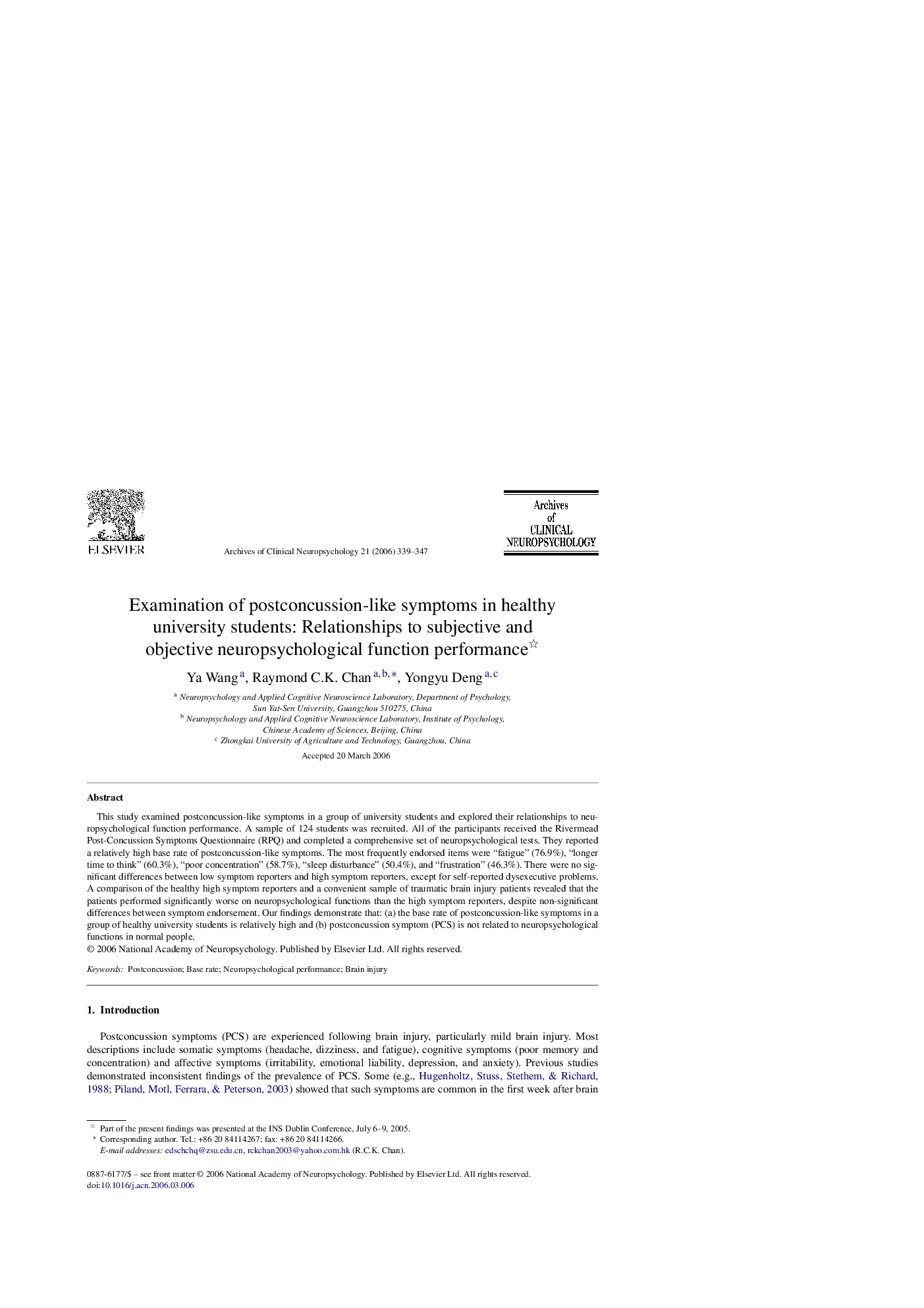| Article ID | Journal | Published Year | Pages | File Type |
|---|---|---|---|---|
| 901123 | Archives of Clinical Neuropsychology | 2006 | 9 Pages |
This study examined postconcussion-like symptoms in a group of university students and explored their relationships to neuropsychological function performance. A sample of 124 students was recruited. All of the participants received the Rivermead Post-Concussion Symptoms Questionnaire (RPQ) and completed a comprehensive set of neuropsychological tests. They reported a relatively high base rate of postconcussion-like symptoms. The most frequently endorsed items were “fatigue” (76.9%), “longer time to think” (60.3%), “poor concentration” (58.7%), “sleep disturbance” (50.4%), and “frustration” (46.3%). There were no significant differences between low symptom reporters and high symptom reporters, except for self-reported dysexecutive problems. A comparison of the healthy high symptom reporters and a convenient sample of traumatic brain injury patients revealed that the patients performed significantly worse on neuropsychological functions than the high symptom reporters, despite non-significant differences between symptom endorsement. Our findings demonstrate that: (a) the base rate of postconcussion-like symptoms in a group of healthy university students is relatively high and (b) postconcussion symptom (PCS) is not related to neuropsychological functions in normal people.
